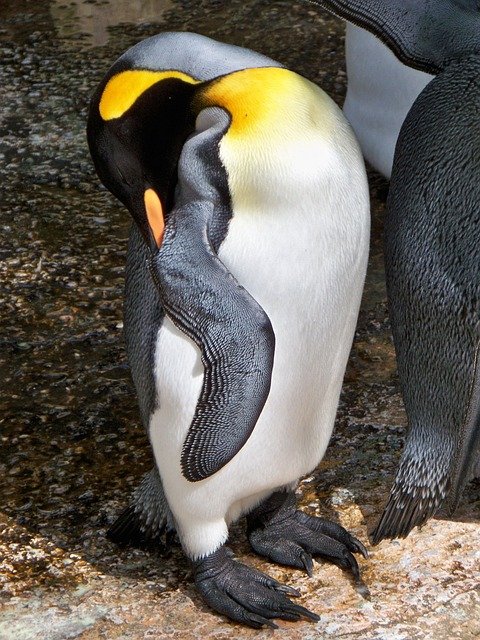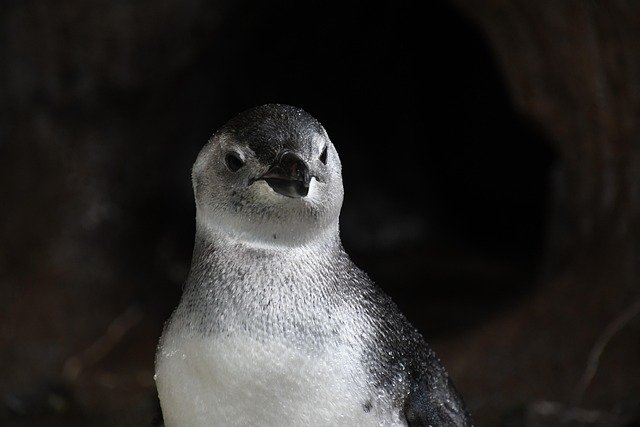**Topic: "The Social Lives of Penguins: Exploring Their Unique Communication and Social Structures"** In

The Social Lives of Penguins: Exploring Their Unique Communication and Social Structures
Penguins are not just adorable creatures waddling across icy landscapes; they are also fascinating social beings with complex communication systems and intricate social structures. In this post, we will dive into the unique social lives of these flightless birds, exploring how they interact, communicate, and form communities.
Social Structures of Penguins
Colony Life
Most penguin species are highly social and live in large colonies that can consist of thousands of individuals. These colonies provide several benefits, including protection from predators, increased foraging efficiency, and social interaction. For example, the Emperor Penguin, known for its remarkable breeding behavior, gathers in large groups during the harsh Antarctic winter, where they huddle together to conserve warmth.
Hierarchical Dynamics
Within these colonies, penguins often establish a hierarchy based on factors such as age, size, and breeding status. This hierarchy can influence access to resources, mates, and nesting sites. For instance, dominant individuals may secure better nesting locations, while subordinates may have to adapt their behaviors to find suitable spots.
Communication Among Penguins
Vocalizations
Penguins are known for their diverse vocalizations, which play a crucial role in their social interactions. Each species has its own set of calls that serve different purposes, such as attracting mates, signaling alarm, or coordinating group movements. For example, the African Penguin has a distinctive braying call, while the Gentoo Penguin is known for its loud, trumpeting sounds.
Body Language
In addition to vocalizations, penguins also use body language to communicate. Postures, movements, and even the positioning of their flippers can convey messages about aggression, submission, or courtship. For instance, during mating rituals, male penguins often engage in elaborate displays, including bowing and presenting pebbles to potential mates.
Visual Signals
Penguins also rely on visual signals to communicate, particularly during courtship and parenting. The distinctive markings and coloration of different species can play a role in attracting mates and signaling health and vitality. For example, the bright orange patch on the Emperor Penguin's neck becomes more vibrant during the breeding season, signaling readiness to mate.
Parenting and Social Bonds
Cooperative Breeding
Many penguin species exhibit cooperative breeding behaviors, where individuals other than the parents help care for the young. This social structure fosters strong community bonds and increases the survival rates of chicks. In some species, such as the Adélie Penguin, non-breeding adults may assist in guarding nests or feeding chicks, highlighting the importance of social cooperation.
Parent-Chick Communication
The bond between parent penguins and their chicks is incredibly strong. Parents recognize their chicks through unique vocalizations, allowing them to locate each other in crowded colonies. This recognition is vital for the survival of the chicks, as it ensures they receive the necessary care and protection from their parents.
Conclusion
The social lives of penguins are a testament to the complexity and richness of animal behavior. Their unique communication methods and social structures not only enhance their survival but also contribute to the overall dynamics of their colonies. As we continue to study these remarkable birds, we gain deeper insights into the intricate web of social interactions that define their lives in some of the harshest environments on Earth.
Whether you’re a seasoned ornithologist or simply a penguin enthusiast, understanding their social lives adds another layer of appreciation for these incredible creatures. Next time you see a group of penguins, take a moment to consider the intricate social world they inhabit!

Upvoted! Thank you for supporting witness @jswit.